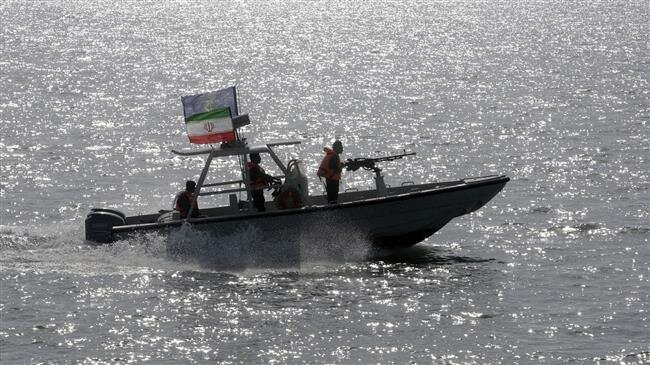Mousavi made the remarks on Friday in reaction to reports of the Zionist regime’s declaration of its preparedness to join a US-led military coalition to “protect the safety of navigation” in the Persian Gulf.
“The Islamic Republic of Iran believes the coalition is tension-provoking in nature,” the spokesman said.
Mousavi referred to the occupying regime’s “illegitimate existence in the Middle East” as the “basis of insecurity and instability”, and said Iran considers any Israeli presence in this coalition as “a clear threat to its security, sovereignty, and territorial integrity, and a crisis-provoking and destabilizing element in the Persian Gulf Region.”
“The Islamic Republic of Iran reserves the right to counter this threat and defend its territory within the framework of the country’s deterrence and defensive policy, and will show no hesitation in translating it into action as part of its defensive policies,” he noted.
“The US regime and the illegitimate Zionist regime are responsible for all the consequences of this dangerous move,” the spokesman warned.
Referring to the US’ attempts to form a military coalition or hold a maritime security conference in the future on the pretext of ensuring the safety of navigation in the Persian Gulf, Mousavi said, “Iran as one of the Persian Gulf littoral states has 1,500 miles of coastline in this region, considers the Persian Gulf as part of its territory, and feels committed to ensure its security and the safety of the navigation of ships in this region based on its historical responsibility.”
“Iran believes the presence of ultra-regional forces in the Persian Gulf under any name and title will not only fail to help reinforce the region’s security, but will more than ever prepare the grounds for tension and crisis in the sensitive Persian Gulf region,” he added
The Foreign Ministry spokesman said, “The Islamic Republic of Iran expresses its opposition to the formation of such coalitions, and considers it as a tension-provoking and deceitful measure.”
He also noted that the organizers, founders, and members of such coalitions will be regarded as the main culprits behind possible tensions and crises that would emanate from such moves.
Mousavi’s comments came after Israel announced it will join the US effort to “boost navigation security” in the Persian Gulf as tensions grow in the strategic region of Persian Gulf.
According to Israel-based Y-Net news, Israeli Foreign Minister Israel Katz said on Tuesday August 7 that the Israeli regime is part of the US-led coalition to protect the security of the Persian Gulf.
Katz further said that Israel is determined to stop what he called Iranian entrenchment in the Middle East region and strengthen Israel’s relationship with Persian Gulf countries, Y-Net reported.
The US has announced plans to form a Washington-led force amid its attempts to trouble Iran’s foreign oil sales as part of its sanctions targeting the Islamic Republic.
On June 30, the US officially asked Germany to participate — alongside Britain and France — in the coalition, a request that was declined by German Foreign Minister Heiko Maas a day later.
Japan has likewise refused to join the force, and France has expressed reservations. Earlier in August, Bloomberg also reported that the US efforts to build the coalition “continue to bear little fruit,” noting that major ally Australia was still undecided whether to join.
Tensions in the Persian Gulf flared up after a series of suspicious attacks on oil tankers, following the US deployment of a new naval group and B-52 bombers to the region amid claims of unspecified Iranian threats.
